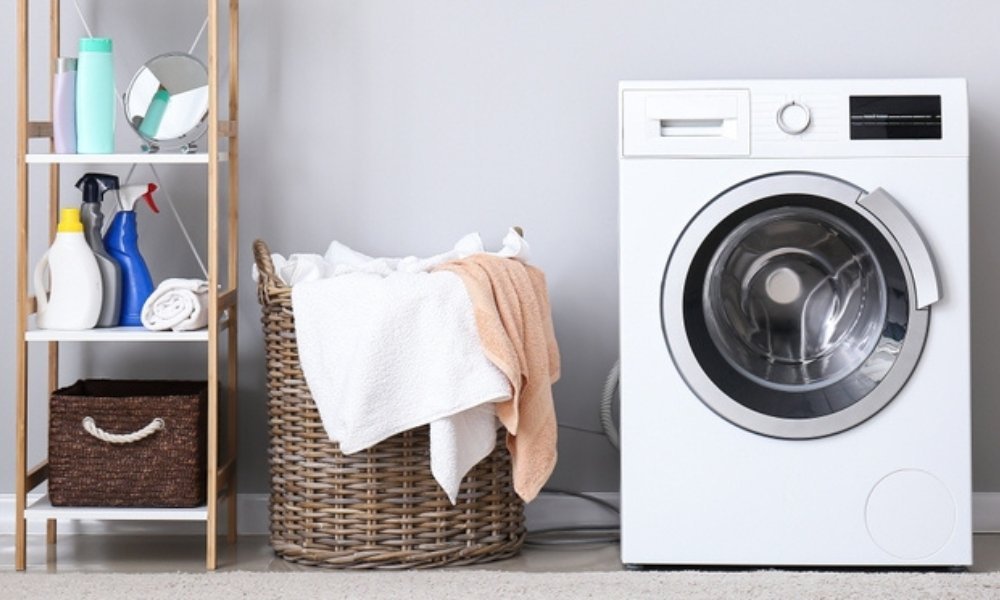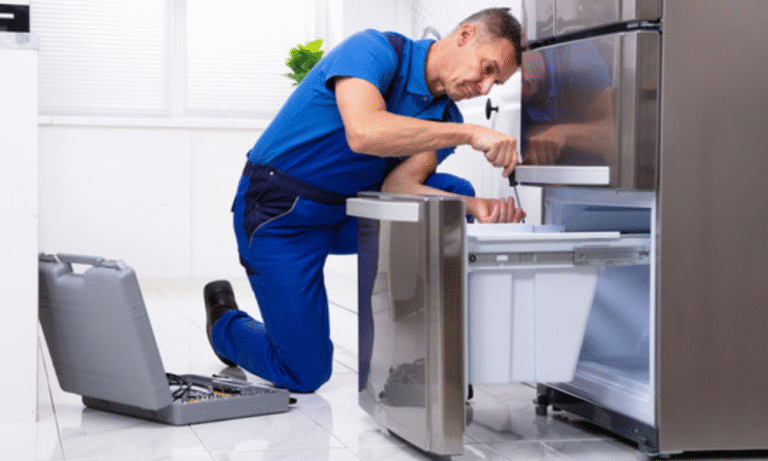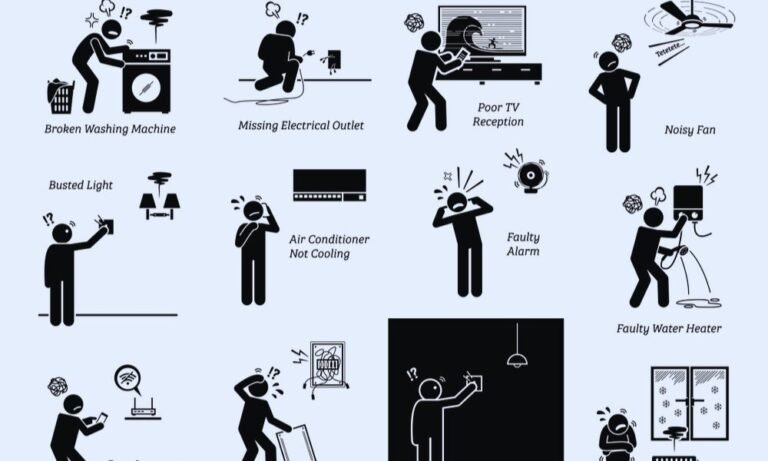Estimated reading time: 4 minutes
A washing machine is a major investment. Keeping it in good condition can save you from expensive repairs or premature replacements. I’ve worked with countless washers, and I know that a little maintenance goes a long way.
In this guide, I’ll cover:
The most common mistakes that shorten your washer’s life
Easy maintenance tips that prevent breakdowns
When to DIY and when to call an expert
Let’s make sure your washer works efficiently for years to come.
Quick Fixes to Keep Your Washer in Top Shape
Don’t Overload Your Washer
- Overloading strains the motor and suspension.
- Clothes need space to tumble—filling the drum ¾ full is ideal.
- Large loads wear out belts, bearings, and shocks faster.
Pro Tip: If your washer shakes violently, try smaller loads or check if the machine is level.
Use the Right Amount of Detergent
- Too much detergent causes residue buildup and forces extra rinse cycles.
- High-efficiency (HE) washers need HE detergent—regular soap creates excessive suds.
- Overusing soap can damage the pump and clog drain hoses.
Pro Tip: Follow the manufacturer’s recommended amount, and consider using vinegar once a month to remove soap buildup.
Keep It Level to Avoid Damage
- An unbalanced washer bounces during spin cycles, stressing internal parts.
- Adjust the legs or use anti-vibration pads for stability.
- Place a level tool on top to check balance.
Pro Tip: If your washer is on a pedestal, ensure it’s securely attached to avoid unnecessary movement.
Clean the Washer Drum and Gasket Regularly
- Dirt, detergent, and fabric softener leave behind sticky residue.
- Mold and mildew love warm, damp spaces—especially front-load gaskets.
- Run a hot cycle with vinegar and baking soda once a month to remove odors.
Pro Tip: Leave the door open after each wash to prevent musty smells.
Inspect the Hoses for Leaks or Damage
- Washer hoses can crack, bulge, or leak over time.
- Replace rubber hoses with stainless steel braided hoses every 3-5 years.
- Check for water pooling behind the machine—small leaks can lead to big problems.
Pro Tip: If your washer takes longer to fill, a partially clogged hose might be the culprit.
Clean Out the Lint and Drain Pump Filter
- Lint, coins, and small objects can clog the drain filter, leading to drainage issues.
- Check the drain pump filter every few months—it’s usually at the bottom front of the washer.
- A clogged filter can cause slow draining, error codes, or musty odors.
Pro Tip: Keep a small bowl handy when opening the filter to catch leftover water.
The Don’ts of Washing Machine Maintenance
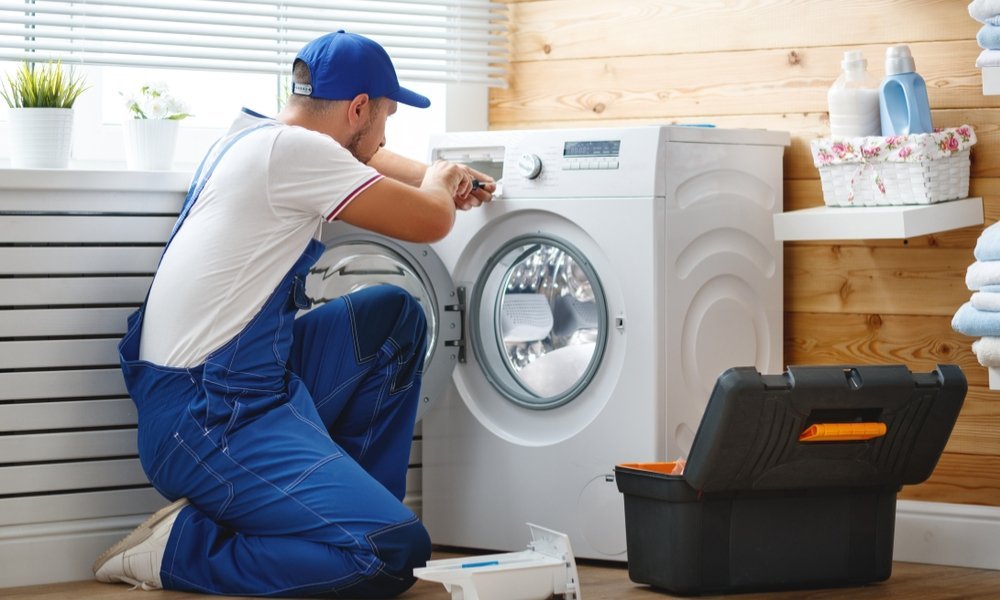
Don’t Let Wet Clothes Sit in the Drum
- Damp clothes promote mildew growth.
- Always remove laundry immediately after the cycle finishes.
Don’t Ignore Strange Noises or Vibrations
- Loud banging = overloaded or unbalanced loads.
- Grinding sounds = worn-out bearings (time for a professional check-up).
Don’t Use Too Much Fabric Softener
- Softener builds up over time, clogging dispensers and hoses.
- Alternative: Add white vinegar to the softener dispenser—it softens clothes naturally.
When to Call a Professional for Repairs
Even with great maintenance, washers break down. Here’s when to skip DIY and call an expert:
Leaking water despite checking hoses and seals.
Washer won’t start or complete a cycle.
Loud, unusual noises persist even after balancing loads.
Clothes come out soaking wet—possible pump or motor failure.
Wondering if it’s time for a repair? Check these common appliance problems.
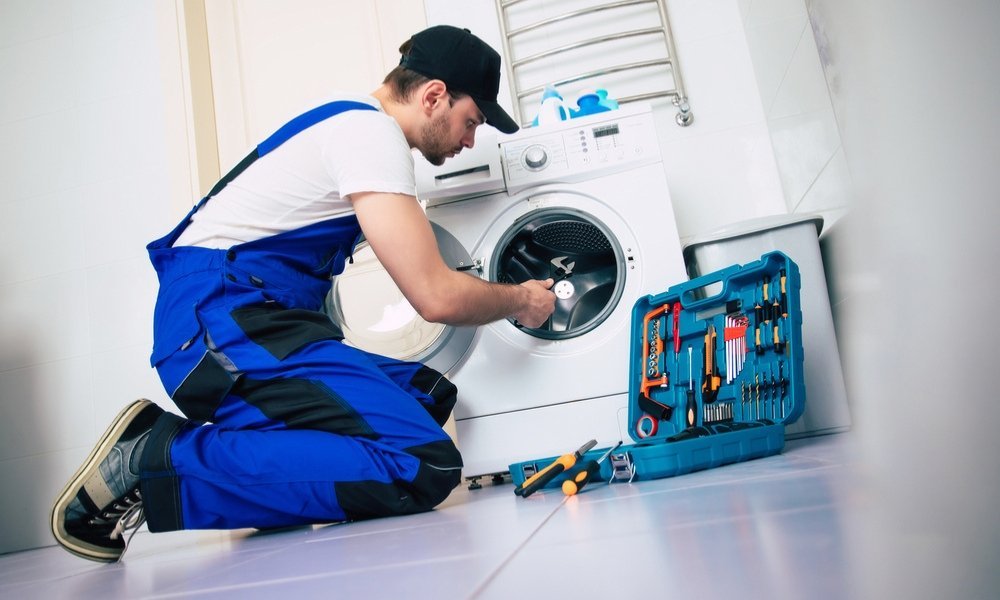
Bonus Tips to Extend Your Washer’s Life Even Longer
Use Cold Water Whenever Possible
- Hot water wears out internal rubber parts faster.
- Cold water preserves fabric color and prevents shrinkage.
Run a Maintenance Wash Once a Month
- Run an empty hot cycle with vinegar and baking soda to clean the drum.
- Wipe down the inside of the washer and gasket seals.
Invest in a Surge Protector
- Power surges can damage the washer’s control board.
- A surge protector prevents costly repairs.
Final Thoughts: A Little Maintenance Saves a Lot of Money
A well-maintained washing machine runs efficiently, saves energy, and lasts longer. Following these simple steps prevents unnecessary repairs and breakdowns.
Keep loads manageable
Use the right amount of detergent
Check hoses and filters regularly And when in doubt, call a professional before small issues turn into expensive repairs.
